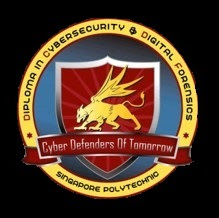SP works closely with EC-Council under the Academia Partner Programme. DISM students only need to pay the discounted price (pay only about 10% of the commercial course fee) for the on-line study materials that comes with a complimentary examination voucher.
In addition, you also need to consider addtional training such as mobile/handheld/smart devices forensics and malware reverse engineering as these skills are usually required for computer-related forensics investigation. We offer these modules in our DISM curriculum.
Computer Hacking Forensic Investigator (CHFI)
Computer crime in today’s cyber world is on the rise. Computer Investigation techniques are being used by police, government and corporate entities globally and many of them turn to EC-Council for our Computer Hacking Forensic Investigator CHFI Training and Certification Program. Computer Security and Computer investigations are changing terms. More tools are invented daily for conducting Computer Investigations, be it computer crime, digital forensics, computer investigations, or even standard computer data recovery, The tools and techniques covered in EC-Council’s CHFI program will prepare the student to conduct computer investigations using groundbreaking digital forensics technologies.
Computer Investigation
Computer hacking forensic investigation is the process of detecting hacking attacks and properly extracting evidence to report the crime and conduct audits to prevent future attacks.
 Computer forensics is simply the application of computer investigation and analysis techniques in the interests of determining potential legal evidence. Evidence might be sought in a wide range of computer crime or misuse, including but not limited to theft of trade secrets, theft of or destruction of intellectual property, and fraud. CHFI investigators can draw on an array of methods for discovering data that resides in a computer system, or recovering deleted, encrypted, or damaged file information known as computer data recovery.
Computer forensics is simply the application of computer investigation and analysis techniques in the interests of determining potential legal evidence. Evidence might be sought in a wide range of computer crime or misuse, including but not limited to theft of trade secrets, theft of or destruction of intellectual property, and fraud. CHFI investigators can draw on an array of methods for discovering data that resides in a computer system, or recovering deleted, encrypted, or damaged file information known as computer data recovery. Electronic evidence is critical in the following situations
• Disloyal employees
• Computer break-ins
• Possession of pornography
• Breach of contract
• Industrial espionage
• E-mail Fraud
• Bankruptcy
• Disputed dismissals
• Web page defacements
• Theft of company documents




